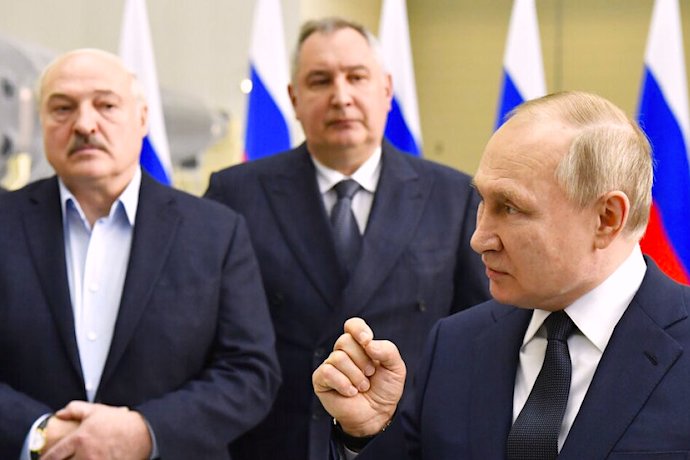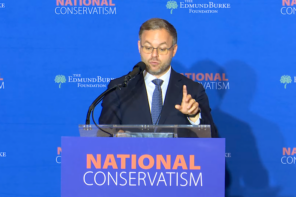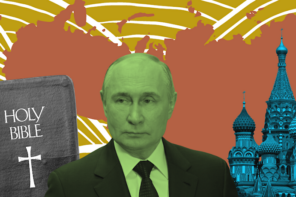When Vladimir Putin recently announced the annexation of four regions of Ukraine that were purported to have voted in favor of joining Russia, he did so in what’s been described as an “unhinged rant.” In this wide-ranging and often incoherent talk, he blamed the West, not just for supporting the right of Ukraine to maintain its independence, but also for what he described as a “satanic” view of the world.
This would appear to raise the confrontation between Russia and Ukraine to a whole new level of conflict. Now it wasn’t just a fight over territory, but over righteousness and civilization itself.
Of course, Putin wasn’t the first to cast the war in these religious terms. It was previously portrayed this way by his comrade and co-conspirator in bellicose language, Patriarch Kirill, the titular leader of the Russian Orthodox Church.
On March 5, 2022, at the outset of the Russian invasion of Ukraine, the Patriarch delivered a sermon on what is known as Forgiveness Sunday in the Russian Orthodox tradition. In it, he portrayed the battle in Ukraine as not just a mundane military encounter, but a conflict of “metaphysical significance,” in which the existential forces of good and darkness were contesting.
Kirill, and now Putin, have raised the stakes in what was initially described as a military operation. It now appears to be something of a holy war.
My recent book, God at War, examines the concept of war, especially as it’s been used by a variety of groups engaged in terrorism that I’ve studied in the past 30 years. It strikes me that there are different ways of conceiving war—even different ways of conceiving the relationship between religion and war.
Often priests and other clergy are brought in to bless the troops and to imply that God is on the side of one’s army during a military confrontation. But what many violent activists assert goes beyond that; they claim that it’s part of God’s design in a transcendent confrontation of apocalyptic proportions.
This awesome view of war on a metaphysical level is what I’ve called “cosmic war.” It’s more than just a religious affirmation of one’s military; it’s lifting military combat into the high proscenium of spiritual battle.
This is what Patriarch Kirill and now Putin have done with their war in Ukraine: turned it into their own cosmic war.
Such wars never end well. Like the notion of “absolute war” described by the 18th century Prussian General, Carl von Clausewitz, as long as a battle is conceived in cosmic terms there’s no possibility for negotiation or easy abnegation of the struggle. There can only be absolute victory or absolute defeat.
Putin’s annexation of portions of Ukraine and his strident talk about fighting the “satanic” power of the West set him up for one or the other of these two choices. But cosmic war can seldom be achieved by mortal means. It’s a fantastic vision that ultimately must bend to reality and be abandoned.
This is what has happened in many of the religion-related violent struggles in recent history. Take ISIS, for instance. When I talked with former ISIS militants, most no longer believed they were engaged in a cosmic struggle. Some, however, told me they still believed in the caliphate and the metaphysical struggle against satanic enemies, but no longer believed that the ISIS organization was worthy of conducting it.
Cosmic war can be abandoned as quickly as it was embraced. Or, in some cases, it’s possible to retain a notion of cosmic war but detach it from earthly struggles. This happens only when reality sets in, when it’s clear that the cosmic struggle isn’t going to succeed on an earthly plane and there are other options for survival.
The hope is that Putin will realize that his imagined metaphysical war is a fantasy, or that it need not apply to his territorial ambitions in Ukraine. His cosmic war will end only when he’s forced to accede to reality, including his increasing likelihood of defeat.





